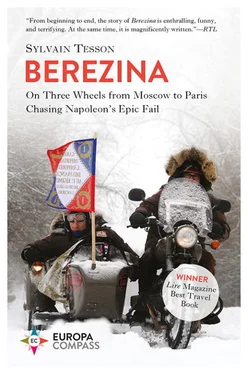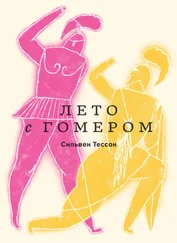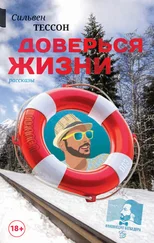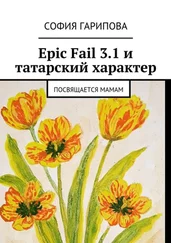Despite the medals jangling on his overly large chest, Kutuzov had nothing to crow about. He could certainly take the credit for Napoleon’s escape, but had decimated his own troops. Winter, vermin, and famine hadn’t made any distinction among nationalities and dealt the Russians a blow as harsh as French ranks. Since Moscow, he had lost two thirds of his men. In Vilnius, he had thirty thousand soldiers left out of the hundred thousand with whom he had set off.
For the French, the Vilnius slaughter had originated in something other than exhaustion, famine, and cold. The Cossacks did not know that they had an ally in the form of lice. In August 2001, in the Šiaures miestelis district of Vilnius, Lithuanian workmen unearthed a “catastrophic burial place” containing hundreds of French soldiers. Scientists from a Franco-Lithuanian excavation commission identified in the corpses the traces of bacteria which, as well as having a Polish-sounding name— rickettsia prowazecki —was the means of transmitting typhus. Thus, thousands of soldiers had survived the Cossack saber and the drop in temperature, only to succumb to fever. The First French Empire had discovered a new enemy: vermin.
“Can you imagine?” Vitaly said. “The army of lice!”
“Russians certainly got their help during that war,” I said.
“Let’s go to Antakalnis,” Goisque says. “That’s where they buried the bodies of the French.”
The Antakalnis cemetery occupies a hillside northeast of Vilnius, not far from the banks of the Neris River. We arrived there at midday and cut the engines outside the entrance wall. Two homeless men were smoking on a bench. Our eyesight was distorted. In the snow, with puffy faces, their rags, their heads wrapped in wool, and their white-blond hair, they looked like something in a 19th century print, “Army Voltigeurs During the Rout” style. They offered to watch our motorbikes.
“Are you going to look at the French?” they said.
“How do you know?” I said.
“A bunch of guys on Urals, where else would you be going if not to look at the French grave?”
“Oh?”
“Three litai to watch your bikes.”
“Three litai for all three?” Vitaly said.
“Three litai per bike,” they said.
“They’re not worth that much,” Vitaly said.
I would have liked to rest in this cemetery. The stone tombs had been erected in an undergrowth of conifers. The corners were softened by moss. Sculptures of neo-Gothic angels were leaning tenderly over the slumber of the dead. There was something about this undergrowth that reminded one of the abandonment of British cemeteries. Vitaly strolled among the sections, the bicorn on his head. The cypresses were like black candles. We walked for a long time, looking for the 1812 plot. We reviewed the martyred Poles, World War I Germans, and the cement monument erected to the heroes of the Red Army. We discovered the stelae of the January 1991 victims. I’d forgotten about that case, until Vitaly reminded me. Encouraged by the liberal endorsement unanimously awarded by Western leaders, Gorbachev had crushed the demonstrations of young Lithuanian anti-socialist protesters in blood. The cemetery stated: Lithuania, like Poland, was a country that traveled across the 20th century in the worst possible geographical position anyone could occupy: that of being between Germany and Russia. Might as well keep your hand in the vise.
At the end of a long descent, there was the plot of our own ghosts. And a plaque: “Here lie the remains of the soldiers of the twenty nations that made up Emperor Napoleon I’s Grande Armée , who died in Vilnius on their way back from the Russian campaign in December 1812.”
The forgotten soldiers in the mass grave of Šiaures miestelis had been buried in the cemetery in 2003. For the first time, we were entering a tangible location of the Retreat, a space that was not just a setting for the memory or a historical theater. Beneath the snow lay the bones of men whose tracks we had been following since Moscow. We were no longer chasing after ghosts. We were standing before their remains.
“Guys,” Vitaly said, “I understand you find this moving, but davay .”
That morning, we had finally agreed on the sequence of events. We were going to follow the tracks of Napoleon and Caulaincourt’s flight on a sleigh, rather than those of the final days of the dying army. The route of the sleeper went through Warsaw and Erfurt and would take us to Paris through Westphalia. Our progress promised a journey across highly Napoleonic geography. We would still be living through the Imperial memory.
Destiny had one final trial in store for the runaways. Once Vilnius was evacuated, the army was supposed to reach Kaunas, sixty-two miles to the west. On the Ponary escarpment, as they left the Lithuanian capital, the icy slope dealt the final blow. “That’s where we lost all our artillery, our wagons, and our baggage once and for all,” Berthier writes in his dispatch to the Emperor. The soldiers could not heave the carriages over the hill. The cold was still at 4°F. The horses were just skinny flesh incapable of the slightest spurt. The clutter of the equipment and crowd of humans blocked the way. And yet the essential—the imperial treasure—had to be saved. The officers requisitioned a few horses from the cavalry in order to try and save it, but the carriages were immobilized by the jumble of crates mixed with corpses. There was the solution of trusting the soldiers with sacks of gold, and carrying the treasure on foot. The operation turned into looting. The dying men smashed the wooden panels and took possession of the sacks with gold coins like mantises. They were drawing their salaries for suffering. The looting carried on all night, until the gunshots of Platov’s Cossacks snatched the most avid ones away from their fever. What was the use to them of these furs and barrels of silver in a night of terrors when some mutton broth was more precious than a hundred golden francs? Many, weighed down by their loot, were caught up with and killed by the Russians. Others surged back to Kaunas, for two entire days, ballasted by their riches. “Every soldier was laden with silver,” Labaume says, “but nobody had a rifle.” Only methodical, heroic Marshal Ney continued to assemble the men and protect the rear, yelling out his orders. He remained even greater than his legend till the very end. Bourgogne saw him clenching a fist, holding a rifle “the way the heroes of Antiquity are depicted.” At this stage of the Retreat, while Murat was fleeing and the infantrymen were counting their pennies, Ney was the last depository of the army’s lost greatness.
In Kaunas, just like in Smolensk and Vilnius, there was no respite for the debris. On the heels of a troop where you could no longer tell the difference between a stable boy and a marshal, the wolves of the Cossack divisions entered the city on the 14th, breathing down the necks of Napoleon’s army. The remnants of the French vanguard had arrived a few days earlier, forced the cellars, and emptied the barrels. Many had died from drunkenness. The campaign therefore ended in crepuscular folly. Defeat always produces these scenes of Boschian madness. Before they die, knowing they’re damned, men get drunk, screw, and eat till their bellies burst. Oddly, nobody goes looking for a library to reread one more poem by Virgil.
On December 14th, about twenty thousand runaways crossed the Neman and settled a few leagues away from the left bank. Ney insisted on defending honor, and, containing the Russians, was the last one to ford the river, in the evening, “walking behind everybody else,” according to Ségur. His rear guard had only six hundred defeated men left. The curtain was falling on one of the most disastrous military campaigns in History.
Читать дальше












